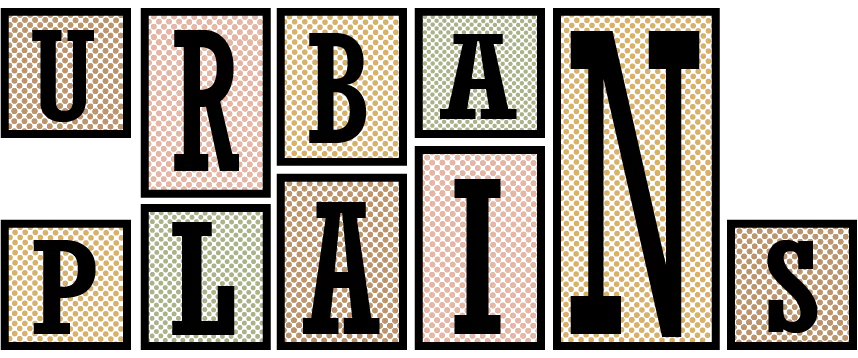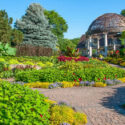Lincoln natives grow up with it. Newcomers embrace it. In a city known for football, museums and a thriving music scene, Sunken Gardens stands out as a gathering place and a retreat in the bustle of the city. Coined “the gem of Lincoln,” Sunken Gardens is a cultural focal point of Nebraska’s capital city.
Developed in 1930, Sunken Gardens lies in the heart of Lincoln, just a couple miles south of the University of Nebraska-Lincoln campus. It covers 1.5 acres that was formerly a neighborhood dumpsite. It’s now one of Lincoln’s greatest attractions and the only Nebraska garden to be featured on National Geographic’s “300 Best Gardens to Visit in the United States and Canada.”
Steve Nosal and Alice Reed have been running the free public garden for 40 years. Nosal is the city horticulturist – an expert in garden cultivation and management – for the City of Lincoln. Reed is the head gardener. It was her destiny to work here. She toured the gardens with her mom when she was small.
“It was like a wonderland to me,” Reed said. “And I thought someday I’d love to work there. I went to college, grew up, and did it.”
Upon entering the gardens, a gazebo with pristine white pillars showcases information about the gardens and a sign-in sheet. Tiered levels of bright, lush flowers cover the ground. Small waterfalls trickle down while fish swim in the lilypad ponds. The different plants are organized to create designs and patterns.
Those designs: They always fit into a theme. For the past 20 years, Sunken Gardens has had a different one each year, picked by Nosal and Reed. Past themes have included “Ruby Slippers” inspired by the Wizard of Oz and “A Wonderland” inspired by Alice’s Adventures in Wonderland. This year, it’s The Beatles.
Octopus’s Garden
Each year, Nosal and Reed begin brainstorming themes by asking the public what they want to see. They hold meetings, conduct focus groups and ask for input on social media. Once they feel that they have a good idea of what the people want, they get to work. They design the garden layout based on the theme. They gather all of the necessary plants to make the vision come to life. Suddenly, an arrangement of roses turns into a ruby slipper.
The 2023 theme is “Magical Mystery Tour,” inspired by the artwork of The Beatles’ albums throughout the ‘60s and ‘70s. There will be motifs paying homage to “Penny Lane,” “Octopus’s Garden,” and “Love Love Love.” A mix of vibrant red and yellow flowers are going to be strategically placed to create “Strawberry Fields.”
“There’s always something going on in the world,” Nosal said. “We were just trying to get a feel for what the world needs more of. ‘What the world needs more is love, love, love.”’

Come Together
The Sunken Gardens were built during another time that needed a lift. In the height of the Great Depression, the dual anxieties of unemployment and hunger ran rampant in Lincoln. Community leaders wanted to give citizens a beacon of hope. A group of approximately 300 men were hired to build Sunken Gardens with whatever they could find around the community.
The gardens serve the same purpose today. They are a symbol of happiness and positivity in the community.
“We’ve proven to ourselves that as human beings, we need color in our lives,” Reed said. “Otherwise, we wouldn’t paint our houses. We wouldn’t wear green shirts on a certain day. Color gives you hope.”
The community in Lincoln seems to understand this need better than most. Seasonal gardens are rare in the Midwest because of the limited time for planting and growing, a lack of community support and funding issues. Sunken Gardens is a special exception. While the seasonal climate does restrict year-round planting, there’s no lack of community support. The gardens are entirely publicly funded through donations and endowments. Donations come from all types of citizens.
“We are amazed at the variety of people that would step forward and throw money at this,” Nosal said. “And the most important thing that we saw is that the citizens of Lincoln were very, very passionate about their gardens.”
So much so that the planters and gardeners who are responsible for upkeep are almost entirely local volunteers. And Nosal and Reed: They consider themselves public servants and emphasize that the most important aspect of the job is to make people happy. They believe the gardens are a beautiful space meant for everyone to enjoy.
“This is their garden,” Nosal said. “And so we ask people, ‘What do you want?’”

